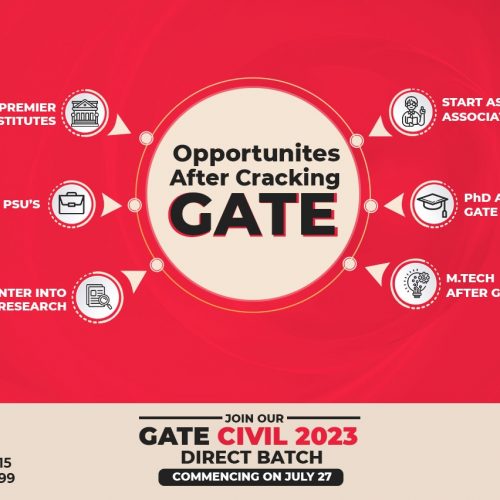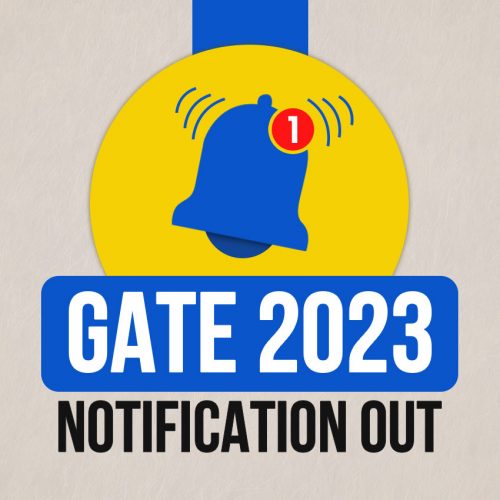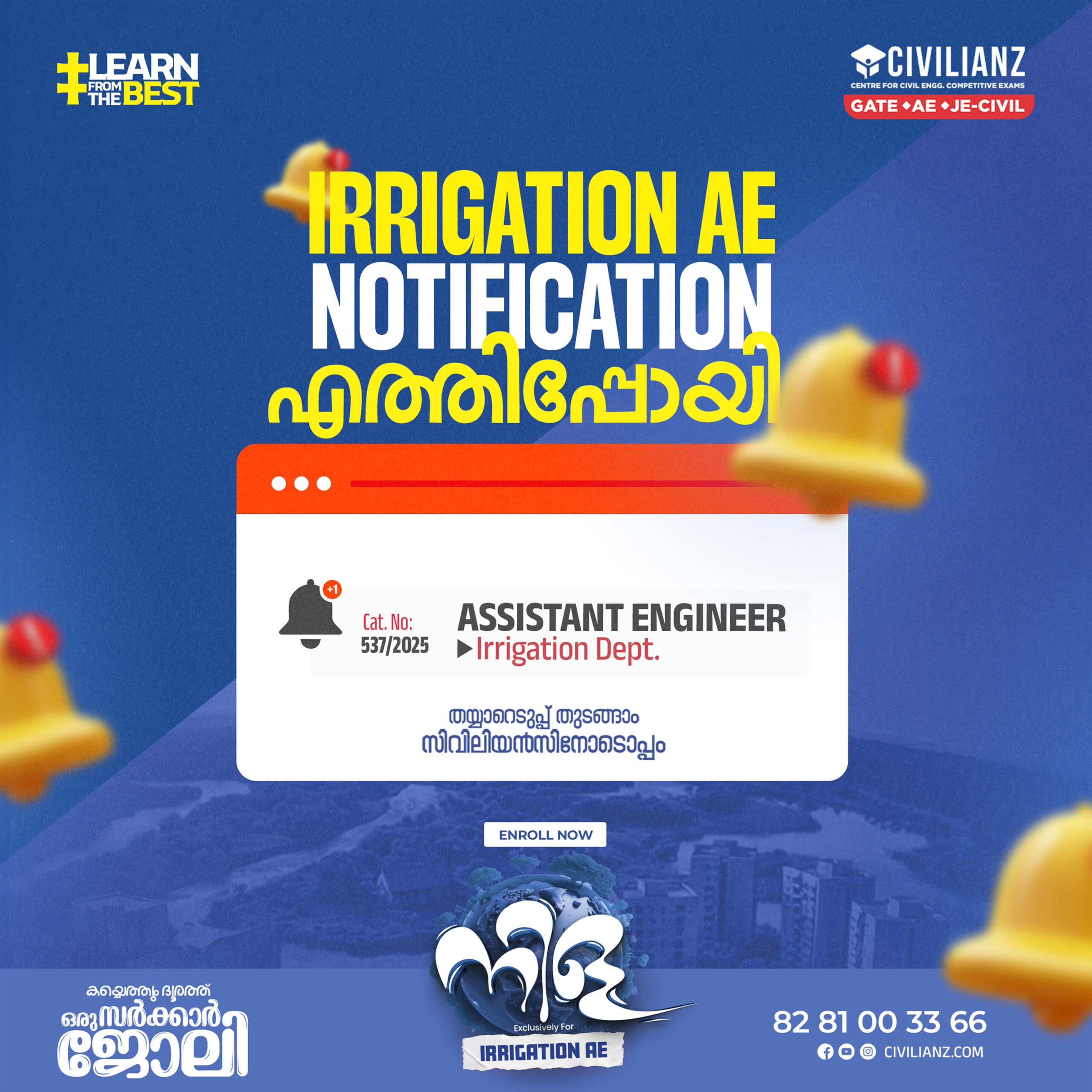
HOW TO CRACK GATE 2023
The mantra for SUCCESS in GATE is the perfect combo of Hard work and Smart work. Here are some key steps to unlock this “CONQUEST”
- Begin with Basics: Basic understanding of the concepts is essential to attempt indirect questions.
- Widen the Work Outs:Try working out those basics and attempt your hands on complex levels
- Regularize Revision: No matter whatever you read and study throughout the year if you don’t revise and practice, you won´t be able to recall and perform well in exams.
- Tie-up with Time:Time management skills are essential to ensure proper dealing with a variety of questions.
The first thing to keep in mind while chasing GATE DREAMS is THERE IS NO SHORTCUT TO SUCCESS. If you’re an aspiring engineer or science scholar, try to build your concept right from college life. Once you have developed your basic knowledge in subjects, follow up by widening the “Area”. Do practice with numerous available textbooks and articles and make use of hundreds of online question platforms regarding the topics you are dealing with. For GATE, there has been a trend has been followed for the past few years regarding the subject weightage. Therefore smart planning is required before you exhibit your hard work strategies. With intelligent drafting, extra consumption of your valuable time can be saved without a compromise in output.
Finally, after you have done with all the concepts and topics according to the significance, there should be ample time to revise. Apart from the academic views, it is also essential to keep sound physical and mental health is also essential . That is proper nutrient intake and a serene sleep pattern are advised. If you are still finding it difficult to balance the methodologies and are in search of proper guidance, CIVILIANZ is here to light the path with effective coaching and workout sessions along with personal mentor forums. CIVILIANZ has developed a customized package exclusively for GATE 2023 aspirants which is an essential bundle to achieve the highest spots. Thus with the experienced faculties and mentors, your way becomes smoother. “Above all, the intensity of your Ambition is the true Game Changer”
GATE SYLLABUS
Section 1: Engineering Mathematics
Linear Algebra: Matrix algebra; Systems of linear equations; Eigen values and Eigen vectors.
Calculus: Functions of single variable; Limit, continuity and differentiability; Mean value theorems,
local maxima and minima; Taylor series; Evaluation of definite and indefinite integrals, application
of definite integral to obtain area and volume; Partial derivatives; Total derivative; Gradient,B Divergence and Curl, Vector identities; Directional derivatives; Line, Surface and Volume integrals.
Ordinary Differential Equation (ODE): First order (linear and non-linear) equations; higher order
linear equations with constant coefficients; Euler-Cauchy equations; initial and boundary value
problems.
Partial Differential Equation (PDE): Fourier series; separation of variables; solutions of onedimensional diffusion equation; first and second order one-dimensional wave equation and twodimensional Laplace equation.
Probability and Statistics: Sampling theorems; Conditional probability; Descriptive statistics –
Mean, median, mode and standard deviation; Random Variables – Discrete and Continuous,
Poisson and Normal Distribution; Linear regression.
Numerical Methods: Error analysis. Numerical solutions of linear and non-linear algebraic
equations; Newton’s and Lagrange polynomials; numerical differentiation; Integration by
trapezoidal and Simpson’s rule; Single and multi-step methods for first order differential equations.
Section 2: Structural Engineering
Engineering Mechanics: System of forces, free-body diagrams, equilibrium equations;
Internalforces in structures; Frictions and its applications; Centre of mass; Free Vibrations of
undamped SDOF system.
Solid Mechanics: Bending moment and shear force in statically determinate beams; Simple stress
and strain relationships; Simple bending theory, flexural and shear stresses, shear centre; Uniform
torsion, Transformation of stress; buckling of column, combined and direct bending stresses.
Structural Analysis: Statically determinate and indeterminate structures by force/ energy methods;
Method of superposition; Analysis of trusses, arches, beams, cables and frames; Displacement
methods: Slope deflection and moment distribution methods; Influence lines; Stiffness and
flexibility methods of structural analysis.
Construction Materials and Management: Construction Materials: Structural Steel – Composition,
material properties and behaviour; Concrete – Constituents, mix design, short-term and long-term
properties. Construction Management: Types of construction projects; Project planning and
network analysis – PERT and CPM; Cost estimation.
Concrete Structures: Working stress and Limit state design concepts; Design of beams, slabs,
columns; Bond and development length; Prestressed concrete beams.
Steel Structures: Working stress and Limit state design concepts; Design of tension and
compression members, beams and beam- columns, column bases; Connections – simple and
eccentric, beam-column connections, plate girders and trusses; Concept of plastic analysis -beams
and frames.
Section 3: Geotechnical Engineering
Soil Mechanics: Three-phase system and phase relationships, index properties; Unified and Indian
standard soil classification system; Permeability – one dimensional flow, Seepage through soils –
two – dimensional flow, flow nets, uplift pressure, piping, capillarity, seepage force; Principle of effective stress and quicksand condition; Compaction of soils; One- dimensional consolidation,
time rate of consolidation; Shear Strength, Mohr’s circle, effective and total shear strength
parameters, Stress-Strain characteristics of clays and sand; Stress paths.
Foundation Engineering: Sub-surface investigations – Drilling bore holes, sampling, plate load test,
standard penetration and cone penetration tests; Earth pressure theories – Rankine and Coulomb;
Stability of slopes – Finite and infinite slopes, Bishop’s method; Stress distribution in soils –
Boussinesq’s theory; Pressure bulbs, Shallow foundations – Terzaghi’s and Meyerhoff’s bearing
capacity theories, effect of water table; Combined footing and raft foundation; Contact pressure;
Settlement analysis in sands and clays; Deep foundations – dynamic and static formulae, Axial
load capacity of piles in sands and clays, pile load test, pile under lateral loading, pile group
efficiency, negative skin friction.
Section 4: Water Resources Engineering
Fluid Mechanics: Properties of fluids, fluid statics; Continuity, momentum and energy equations
and their applications; Potential flow, Laminar and turbulent flow; Flow in pipes, pipe networks;
Concept of boundary layer and its growth; Concept of lift and drag.
Hydraulics: Forces on immersed bodies; Flow measurement in channels and pipes; Dimensional
analysis and hydraulic similitude; Channel Hydraulics – Energy-depth relationships, specific energy,
critical flow, hydraulic jump, uniform flow, gradually varied flow and water surface profiles.
Hydrology: Hydrologic cycle, precipitation, evaporation, evapo-transpiration, watershed, infiltration,
unit hydrographs, hydrograph analysis, reservoir capacity, flood estimation and routing, surface
run-off models, ground water hydrology – steady state well hydraulics and aquifers; Application of
Darcy’s Law.
Irrigation: Types of irrigation systems and methods; Crop water requirements – Duty, delta, evapotranspiration; Gravity Dams and Spillways; Lined and unlined canals, Design of weirs on
permeable foundation; cross drainage structures.
Section 5: Environmental Engineering
Water and Waste Water Quality and Treatment: Basics of water quality standards – Physical,
chemical and biological parameters; Water quality index; Unit processes and operations; Water
requirement; Water distribution system; Drinking water treatment.
Sewerage system design, quantity of domestic wastewater, primary and secondary treatment.
Effluent discharge standards; Sludge disposal; Reuse of treated sewage for different applications.
Air Pollution: Types of pollutants, their sources and impacts, air pollution control, air quality
standards, Air quality Index and limits.
Municipal Solid Wastes: Characteristics, generation, collection and transportation of solid wastes,
engineered systems for solid waste management (reuse/ recycle, energy recovery, treatment and
disposal).
Section 6: Transportation Engineering
Transportation Infrastructure: Geometric design of highways – cross-sectional elements, sight
distances, horizontal and vertical alignments. Geometric design of railway Track – Speed and Cant.
Concept of airport runway length, calculations and corrections; taxiway and exit taxiway design.
Highway Pavements: Highway materials – desirable properties and tests; Desirable properties of
bituminous paving mixes; Design factors for flexible and rigid pavements; Design of flexible and
rigid pavement using IRC codes
Traffic Engineering: Traffic studies on flow and speed, peak hour factor, accident study, statistical
analysis of traffic data; Microscopic and macroscopic parameters of traffic flow, fundamental relationships; Traffic signs; Signal design by Webster’s method; Types of intersections; Highway
capacity.
Section 7: Geomatics Engineering
Principles of surveying; Errors and their adjustment; Maps – scale, coordinate system; Distance and angle measurement – Levelling and trigonometric levelling; Traversing and triangulation survey; Total station; Horizontal and vertical curves. Photogrammetry and Remote Sensing – Scale, flying height; Basics of remote sensing and GIS.
SYLLABUS
DOWNLOAD THE SYLLABUS
Stay up for the Best GATE Coaching in Kerala
Our Direct batch commencing on this July 27 for GATE 2023 CIVIL
🔰 500+ lecture hours
🔰 Printed study material
🔰 Daily assessment tests
🔰 Intensive Workout sessions
🔰 Regular Model Tests
🔰 Comprehensive Test series
🔰 Motivational Sessions
🔰 Personal Mentoring
🔰 Feedback system
🔰 Performance Analysis
🔰 Full length CBT (Covering Comprehensive Syllabus)
Join our early batches for effective preparation 💯
For more details 👇🏼
📱9497498416
📱9383450415
📱9497498415
📱9097550099
CIVILIANZ SOCIAL MEDIA PLATFORMS Our Social media platforms are exclusively for Civil Engineering students, job candidates, teachers and all those who have a passion for Civil Engineering. You will get
-
Civil engineering quiz and rewards
-
Regular job notifications
-
Exam notifications
-
PDF notes
-
Study tips
-
Civil related discussion and all in this group.
JOIN OUR SOCIAL MEDIA PLATFORMS
#learnfromthebest











Leave a comment